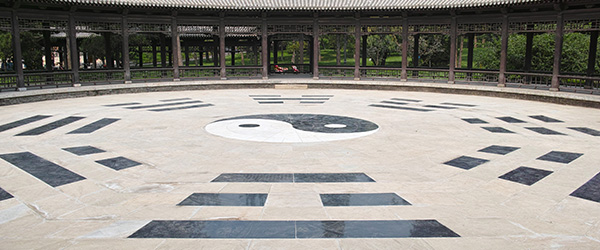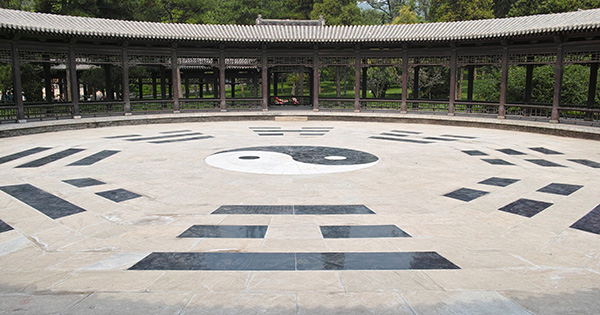
I wasn’t a particularly nervous child. I just never seemed to fit in.
I’m not telling you this because I want your sympathy either. I’m telling you because this is the first step on a journey to understand how Tàijíquán changed my life.
I know that most kids are socially awkward, but I was particularly so. I was not athletic. I liked science, but was poor in math because of undiagnosed dyslexia—which meant I wasn’t good in math or science either. I was good at art, but that’s not enough to make you popular, so I was quite the target for being made fun of by my classmates. I was put down by my teachers, and had very few friends.
To complicate matters in 5th grade I began—along with the rest of my family—suffering from Chronic Fatigue Syndrome (CFS). At the time, very little was known about CFS, and so the school administration and teachers were skeptical to say the least. They said that my brother, sister, and me were faking it. My parents fought tooth and nail against that accusation, even hiring a lawyer and threatening legal action. At that point the school district came back with the statement that we were suffering from a psychosomatic illness and that we needed to be treated by psychiatrists.
My parents took my brother, sister, and me to a psychiatrist who sent the school a written affidavit attesting to the fact that we were, in fact, truly sick and needed medical care, not a school district full of administrators without a medical degree trying to give us a diagnosis.
The school’s response to this was that my siblings and I were kicked out. We were told that since we were sick and nobody knew what was wrong with us, we were a risk to the other students and could not attend.
From the middle of 5th grade to the beginning of 8th, we were home schooled. I missed out on a lot of socialization because of that, and became even more awkward. By high school, my sense of isolation, depression about how poorly I fit in was so bad that every morning before school I had an anxiety attack.
Because nothing in my life was normal, I had no way of measuring what was right and what wasn’t. I aware enough to realize that anxiety attacks might be a medical condition. Since I didn’t realize my experience wasn’t normal, I said nothing and suffered in silence.
By the time I was ready for college, my CFS was in remission, and I was feeling pretty good. I also reconnected with something I truly enjoyed before I became sick: martial arts. Before being isolated from my fellow students, my mother put me in several summer programs involving a local Taekwondo school.
I enjoyed learning to kick and punch, and I didn’t even mind the calisthenics, but felt that what I was learning was spiritually bereft. During that time, all the martial arts movies were filled with a spiritual, quasi-religious tone that never entered the stuff I was learning. Instead of words of wisdom and fatherly advice, my Taekwondo teacher gave speeches about self-discipline, and hard work.
So when I wanted to reconnect with the martial arts, I felt I needed something different, and moved away from the Korean art I’d been studying and began a search for something with a more spiritual bent. After trying several other styles, but feeling like they weren’t the right fit for me, I was ready to give up. A friend of mine at the time suggested that I try Tàijí, so I looked in the phone directory and discovered the Houston Institute of Martial Arts and Medicine.
I started that week, and was immediately pleased to discover that my teacher talked about the importance of breath and the psychological and spiritual benefits of Tàijíquán. From that moment on, I was hooked.
I began my lessons with Jeff Bolt and the same week I started studying with Madam Wang Jurong as well. Within a year, my anxiety went away, my emotions became more balanced, and I felt more confident and calm. By my second year of Tàijíquán study, I was calm enough to enter my first competition. I took gold in the beginners division, and my teacher told me that next time I competed, that I’d have to do it as an advanced student.
I didn’t write this to say that Tàijí is a magical panacea that will cure everyone of every problem they’ve ever had. I’m not even saying that everyone should be doing Tàijíquán. On the contrary, I don’t think it’s for everyone. Some people don’t have a personality suited to learning things like Tàijíquán.
However, I am saying that the mindfulness training from my Tàijí practice helped me deal with anxiety that I would probably have probably needed medication to control. The breath work and spiritual benefits of my training were what I needed to help me get back on track socially, psychologically, and physically.
I am also saying that if it benefited me in this way, there’s a chance that it will help others also. Maybe you should share this story with someone who might profit from some lessons.

Leave a Reply